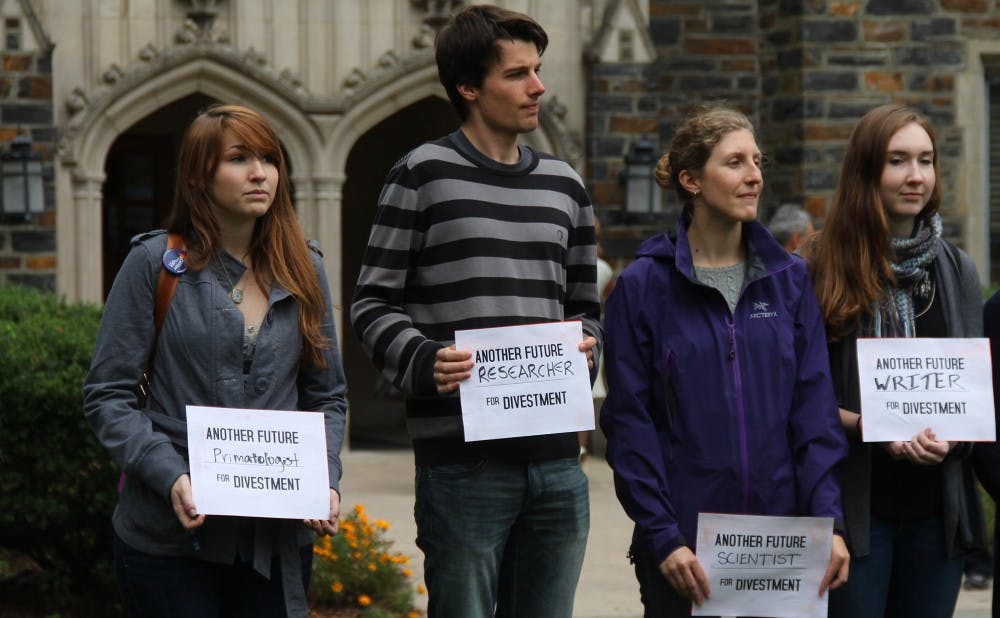As Duke continues in its efforts toward sustainability, some members of the community are raising questions surrounding University investments in fossil fuels.
A panel of professors and graduate students—sponsored by Divest Duke and the Environmental Alliance—discussed whether or not divestment was the most effective way to combat the social and environmental challenges of climate change. Some strongly advocated for Duke to divest, but other panelists suggested a better use of the University’s resources to progress the discussion on fossil fuels.
“This is, to me, fundamentally about who we are and what we represent,” said Stuart Pimm, Doris Duke professor of conservation of ecology, in favor of Duke’s efforts to divest from fossil fuels. “We’re not here to be followers, to go with the flow, to go with what is comfortable—it’s a matter of what we lead.”
Support for complete divestment was not unanimous. Tim Profeta, founding director of the Nicholas Institute for Environmental Policy Solutions, felt the University could be focusing its efforts on more effective campaigns than absolute divestment, especially since fossil fuels are still widely used in society.
“Fossil fuels have been the key to the quality of life that we all enjoy,” Profeta said. “The market has not seen the problem with pollution—we need to make the market see it in some way.”
William Pizer, a joint professor in the Sanford School of Public Policy and faculty fellow in the Nicholas School, also noted that a more subtle approach than divestment may also be worth considering in light of the politically charged climate surrounding the use of fossil fuels.
The discussion referenced several divestment campaigns that succeeded in the past, ranging from international divestments during the South African Apartheid to Duke’s successful student-based coalition to stop making campus apparel in sweatshops in the 1990s. Panelists agreed that divestment would provide a rallying point for other organizations in the push towards independence from fossil fuels despite the costs.
The panel also offered potential solutions to the problem of fossil fuel consumption beyond divestment. These included the development of carbon capture and storage devices and widespread policy changes to incentivize cleaner energy and mobilize more apathetic supporters.
A veteran of climate change lobbies in Washington, Profeta advocated for an approach that would mobilize the majority of the population in support of reducing fossil fuel dependence instead of a "51 percent solution."
Freshman Houston Warren, Divest Duke press coordinator, commended the panel’s multifaceted and sometimes contentious discussion about divestment.
“It’s hard to find people who are against divestment, but the organizers did a good job of getting a diverse opinion," he said.
Get The Chronicle straight to your inbox
Sign up for our weekly newsletter. Cancel at any time.

